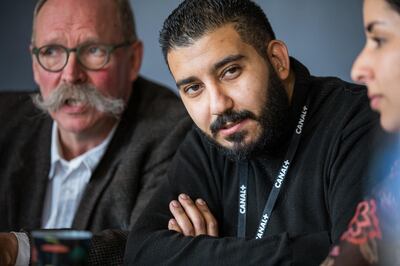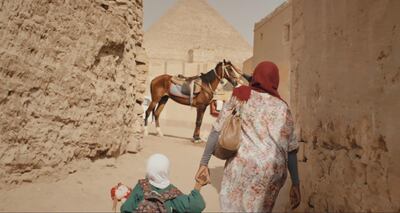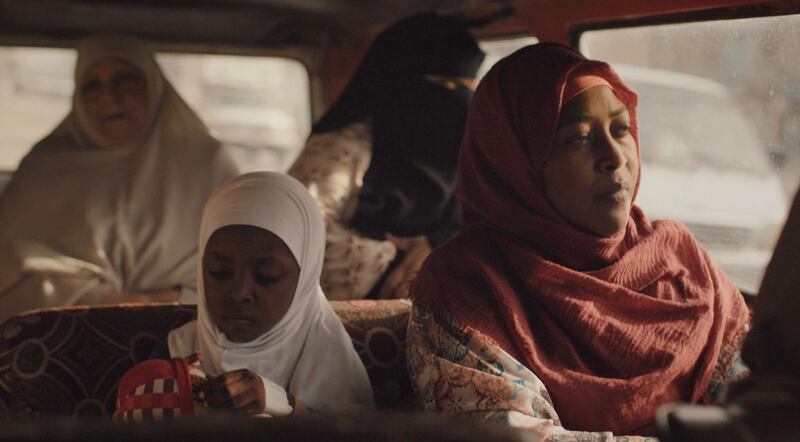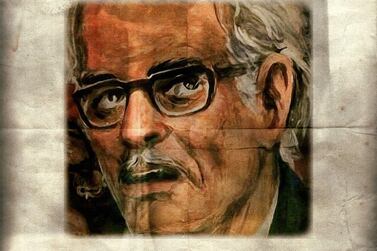When Egyptian director Morad Mostafa sat down to reflect at the end of a successful Clermont-Ferrand International Short Film Festival in February, he must have thought this was set to be his year.
Henet Ward (Ward's Henna Party), his debut film as a director, had just had its world premiere, and was nominated for the Grand Prix at the world's biggest festival for short films. He'd already been accepted to another 40 festivals for the coming year, and was still submitting to more.
On top of all that, the filmmaker, who had previously worked as an assistant director on features including the multi-award-winning Ali, the Goat and Ibrahim, would be heading to Cannes alongside Villa 69 director Ayten Amin, whom he assisted on Souad.

However, the year 2020 had other ideas, and Mostafa's anticipated festival run was abruptly halted because of the coronavirus pandemic.
The director admits the unexpected stop to his busy year was a blow, but he is keen to focus on the positives. “Of course, all our plans suddenly changed, particularly in the Middle East, where all the festivals were postponed, but a lot of festivals went online, too,” he says. “They've used technology in a really smart way. It's a strange feeling for sure, everything being online, especially for my first film, but really I'm happy because even in this situation the film has still managed to screen at many festivals, even though it's online.”
In August, that will change when the film is screened before a live audience at the Busan International Short Film Festival in South Korea, scheduled for Thursday, August 27 to Monday, 31 August. It will be among the first festivals in the world to go ahead with a live audience in something approaching a “normal,” if socially distant, fashion.
Mostafa is delighted his film will be screening at such a prestigious event. Busan is Asia's biggest short film gathering, its prize-winners can qualify for the Oscars and Henet Ward is the only Arabic title to be selected this year.
But also, the film's central theme about the plight of Sudanese refugees in Egypt is one Mustafa hopes to share with audiences all across the globe.
“The Sudanese refugees in Egypt, their situation is very hard,” he says. “There are about 40,000 of them here, according to the UN. They came here to run away from the war and they just want a job.
"There's such suffering, but their dreams and ambitions are just the same as my Egyptian characters – food, sleep, get married, and this is what I want to talk about.”
Henet Ward's lead character, Halima, is a Sudanese henna artist who is called upon to assist with the wedding preparations of a well-off Egyptian family. The day, for Halima and her seven-year-old daughter (the titular Ward), does not go strictly to plan.
While the stories in the film are fictional, Mostafa says they are based on real events such as those seen in the video of a bullied Sudanese student that went viral across Egypt last year.

“This isn't just an Egyptian problem,” Mostafa concedes. “But these people came here to escape oppression, and maybe the oppression is less here than it was at home, but it's a really ugly reality they are living in.
"That's the same for all refugees, Syrian, Palestinian, but you can almost see why people think it's better to take the huge risk of getting on a boat and heading for Italy than staying closer to home. We need to tackle that more openly, to uncover that reality, not just in Egypt, in any place where there is suffering.”
Henet Ward is lent an extra air of realism by the director's decision to use real people rather than actors in his lead roles, to film in actual Cairo locations and to use only natural lighting on set.
Coupled with Mostafa's decision to shoot the film in 35mm, which the director says is the closest thing to “an actual human eye,” the result is a story that frequently leaves the audience unsure whether it is watching a piece of fiction or a fly-on-the-wall documentary.
Considering how the film brings such an incredibly personal look into the daily life of a Sudanese refugee, it is surprising to learn that Mostafa has no close personal or family connection to the African nation.
“I’m just a decent human being, and I wanted to talk about other nationalities, especially the Sudanese refugees I see in Cairo,” he says.
Despite the sometimes harrowing scenes on screen, Mostafa remains upbeat about the future, as long as he and his peers can get these kind of stories to audiences. “I’m very optimistic about our generation,” he says.
“We have a new wave [of cinema] with a great international presence. I’m really glad I took my time to make my first film. I really wanted to learn the art and make sure I knew how to make a film first.
"And of course the topic was very important for my first film. I’m sure I found the right topic.”
Henet Ward will screen at the Busan International Short Film Festival which will run from Thursday, August 27 to Monday, August 31.






